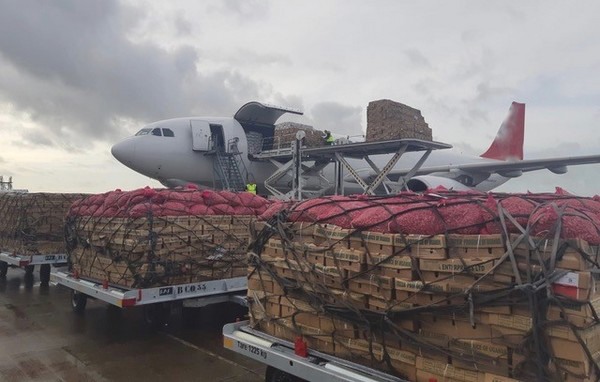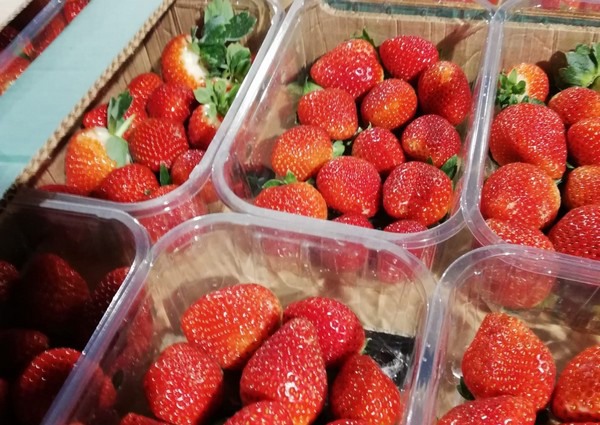The Egyptian strawberry season started more than a month ago. And there's still a lot of demand for the product. Even after a busy Christmas period. "The season began a little later than usual," says Alain Tulpin of the Tulpin Group in Belgium. "They planted early in Egypt. However, many of these plants died and had to be replanted. That was due to a heatwave, with temperatures above 42°C. Nevertheless, there's currently enough supply to meet demand. The strawberries' quality is also relatively good."

“The season will run until the end of January/beginning of February. Then Spanish strawberries come back onto the market. The Moroccan strawberry season has already started too but in small volumes. So there isn't much competition. This year's biggest problem for Egyptian exporters is that few foreign planes want to fly to Egypt. EgyptAir is largely compensating for that. It's using passenger planes as cargo planes to transport all the products."
The Tulpin Group's transport lines remain open, despite Brexit. "We still do some direct flights to England. That's because no-one knew how Brexit was going to go. The trucks are also continuing as usual. Things are still going fairly well. But we were careful in the first few days after Brexit. We expected some additional delays. There was a kilometer-long hold-up between Belgium and France. They were testing drivers [for COVID-19]. However, we've, so far, avoided the biggest delays," says Alain.

“There aren't major delays, in part, because of how busy December was. In Calais and Dunkirk, there are usually 6.000 trucks a day. But in December there was an average of 10.000. It's estimated that between 60.000 and 70 000 additional trucks went to the UK. That means stocks there are higher than normal too. Take frozen vegetables. The British cold stores are full of these. They probably won't have to worry about running out of frozen vegetables for a few months."
According to Tulpin, Brexit could still cause a big headache for the Netherlands. "The Netherlands has always imported and redistributed a lot of goods. The new rules could, therefore, become a problem for certain products. The United Kingdom has also made trade agreements with Morocco, Egypt, Turkey, Israel, and other countries. These might create competition. But, we'll have to learn to live with that. There's no turning back. With time, all the processes will begin to run more smoothly. What's vital is that people must be optimistic about the future," concludes Alain.
For more information: Alain Tulpin
Alain Tulpin
Tulpin Group
Bus 6, 2A Kapelle Street
8460, Oudenburg, Belgium
Tel: +32 (0) 598 06 633
Email: hq@tulpingroup.eu
Website: www.tulpingroup.eu
